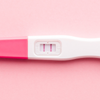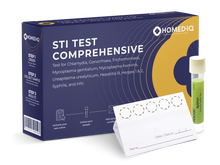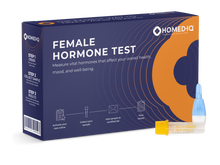Lauren is a health scientist and science communicator currently living in the Netherlands. Originally from Canada, she completed a Research Master’s in Health Sciences at the Netherlands Institute of Health Sciences at Erasmus University Rotterdam (NIHES) with a specialisation in epidemiology. Prior to her master’s degree, she completed a Bachelor’s degree in Health Sciences at Simon Fraser University. With a background in public health, her goal is to create accurate scientific content that is easy to understand and empowers people to make informed decisions. Within Homed-IQ, Lauren works as a Product Developer and Content Lead, working closely with physicians and scientists on medical devices for Homed-IQ’s new products and written communications.
What is creatinine and how can you measure its levels?
Creatinine is a waste product from the breakdown of muscle tissue. It is filtered out of the blood by the kidneys and excreted in the urine. Measuring the creatinine level in the blood and urine helps to assess kidney function. Normal values in blood are 59,2-103,4 µmol/L (0,67-1,17 mg/dL) for men and 45,1-84,0 µmol/L (0,51-0,95 mg/dL) for women, while in urine they are 1768-28000 µmol/L (20-320 mg/dL) for men and 1768-24300 µmol/L (20-275 mg/dL) for women.
Table of Contents
- What is creatinine?
- What does creatinine value indicate?
- What is a normal creatinine value?
- What does low/high creatinine mean?
- Symptoms of low/high creatinine
- Testing creatinine levels
- How do I lower my creatinine level?
- Summary
What is creatinine?
Creatinine is a waste product made by the muscles. As it is produced, creatinine enters your bloodstream and is filtered and broken down in the kidneys. A small amount of creatinine is excreted in the urine. This creates a balanced level in the blood, which is determined by the speed of creatinine production in the muscles and breakdown/excretion by the kidneys (Mayo Clinic, 2025).
What does creatinine value indicate?
Your creatinine value provides insight into the functioning of the kidneys. There is a constant concentration of creatinine in the blood. Therefore, the creatinine value is an excellent indicator to determine whether the kidneys are functioning properly. One’s blood creatinine value determines the amount of waste products in the blood. With this value it is possible to estimate the amount of blood that the kidneys filter per minute (eGFR) (Health and Science, 2018).
What is a normal creatinine value?
The corresponding normal values can be found in the table. Both µmol/L and mg/dL are given as different regions and laboratories use different units of measurement.
| Parameter | Men | Women |
| Blood Creatinine | 59,2-103,4 µmol/L (0,67-1,17 mg/dL) |
45,1-84 µmol/L (0,51-0,95 mg/dL) |
| Urine Creatinine (Sample) | 1768-28000 µmol/L (20-320 mg/dL) |
1768-24300 µmol/L (20-275 mg/dL) |
| Urine Creatinine – 24-Hour Collection | 8-22 mmol/24h (0,9-2,5 g/24h) |
6-18 mmol/24h (0,7-2,0 g/24h) |
A normal blood creatinine value differs from person to person, with men usually having a higher creatinine level than women. This is because men have more skeletal muscle. Likewise, a person with more muscle has a higher creatinine value than a person with less muscle.
What does low/high creatinine mean?
| Creatinine Level | Low | High |
|---|---|---|
| Possible Causes |
|
|
Sources: Dutch Journal of Medicine, 1990
Symptoms of low/high creatinine
| Creatinine Level | Symptoms |
|---|---|
| Low |
|
| High |
|
Source: Cleveland Clinic, 2025; Sissons, C., 2025
Testing creatinine levels
Creatinine can be measured in blood or urine. The appropriate method depends on the situation:
Blood Test
-
Standard method to assess kidney function
-
Often paired with eGFR calculation for better interpretation
Urine Test (24-hour collection)
-
Less commonly used
-
Assesses creatinine clearance for more detailed renal function analysis
Source: National Library of Medicine, n.d.
Testing creatinine levels provides a snapshot of your kidney function. With Homed-IQ’s Liver and Kidney Function Test, you can measure your creatine levels and other important values from home. This blood and urine test provides insight into the following values: ALT, AST, GammaGT, Bilirubin, Albumin, Creatinine, eGFR and Alkaline Phosphatase. In this way, you get as complete a picture as possible of both your kidneys and liver health. The advantage of testing creatinine with a home test is that you do not have to go to the doctor. The analysis of the creatinine value and other biomarkers takes place in a certified laboratory.
How do I lower my creatinine level?
-
Treat underlying health conditions, such as high blood pressure.
-
Reduce salt intake as much as possible to help manage blood pressure.
-
Take prescribed blood pressure medication if recommended by your doctor.
-
Limit protein intake, especially if you have high blood pressure.
-
Quit smoking, as it negatively impacts kidney health.
-
Lose weight if you are overweight.
-
Avoid NSAIDs (e.g. ibuprofen), as these painkillers can harm kidney function; especially if your creatinine levels are high.
Sources: Nierstichting, n.d.
Summary
Creatinine is a waste product from muscle metabolism that is filtered by the kidneys and excreted in the urine. Measuring creatinine levels in blood and urine helps assess kidney health. High levels may indicate kidney dysfunction, dehydration, or high muscle mass, while low levels can result from reduced muscle mass, malnutrition, or liver disease. Homed-IQ’s Liver and Kidney Function Test allows you to measure your creatinine and other biomarkers easily from home to gain insight into your kidney and liver health.









